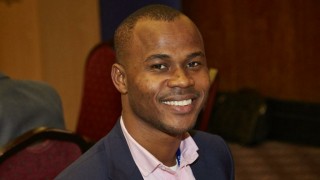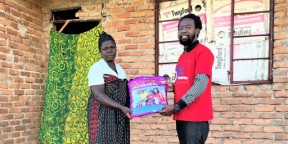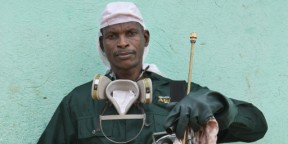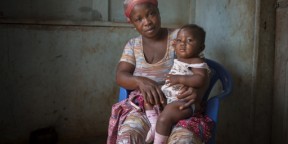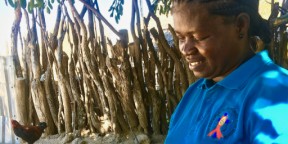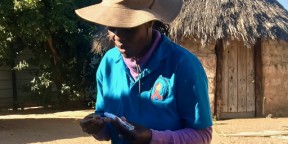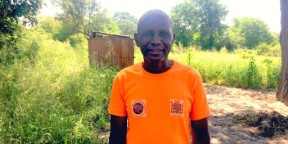Mayowa's story
How many times have I had malaria? It is uncountable. That’s what an African will tell you.
Malaria is a part of our lives. I’ve spent three decades of my life in Africa so there’s no way I could estimate it! It is a terrible disease. It affected me all through my life, my education, my development… Aside from the personal trauma for me it also affected my mum psychologically. She didn’t have the opportunity to go to school so she didn’t understand what it was at that time – until I grew up and went to university and learned about malaria. She suffered from that period of not knowing what was wrong with her child.
It also affected our income because we had to spend the little we had on attending to my frequent sickness. I’m one of those who was lucky to survive the disease. There are lots of people – young people – who didn’t make it after primary school. They didn’t know what to do, or didn’t have access to treatment even if they did know what to do.
Malaria doesn’t discriminate when it comes to age, sex, tribe, religion – it affects everyone in Africa. I may not be able to estimate the damage it has made - or continues to make - in Africa.
The worst part of having malaria is when you become a burden to almost everybody around you, and you’re useless for the time being. Although this happens with all sicknesses, with malaria it is something that you fear will happen again. So – the feeling of becoming a burden to everyone and the feeling of the repetition, the possibility of it happening again makes you feel so horrible.
Of course I didn’t like to miss my primary school education, and I’m lucky that I didn’t lose my life, but each time you find someone who has malaria you see that regret on their face – like ‘why am I a burden to everybody? Is this thing going to ever stop?’
I grew up in a very rural area so when the sickness was too much a family friend took me to the city to be assessed at the clinic. Funnily enough, while I was there I developed a liking of killing mosquitoes. I would wake up in the middle of the night killing mosquitoes. When I came to the city, someone had told me that they were the cause of malaria, but I was not able to comprehend how these little small creatures could result in me falling sick. I’d already developed a liking for killing mosquitoes anywhere I found them – if I saw one I would stand up and kill it – so I decided to learn about mosquitoes.
When I gained admission into first the polytechnic, and then university I started to learn about malaria on the internet, I listened to my friends experiences and started to know the number of cases we had in our university clinic. So my interest came from my own experiences first, and then to what I read on the internet and other people’s stories.
I founded the Ibà Foundation in 2012, as a non-profit to cater to malaria issues in Nigeria – especially in rural areas, and for mothers and children under five. We advocate for behavioural change while also enabling people to live a healthier life. We make existing tools available to them, while also innovating to adapt to specific situations in Africa.
Without malaria my life would have been different in many ways. First the economic angle to it – perhaps we could have used that money to do important things like buy household items or eat good food. From the psychological angle – I still remember the worries my mum went through, putting me on her lap, midnight tears, the torture she had to go through. It would have given her peace of mind if there had been no malaria. Also we could have been generating income for the household, instead of attending to me every time I fell sick. And obviously I would have had the opportunity to study better, because I would have attended school more. I lost about two years of my education to malaria.
Africans think that malaria has come to be part of us. Perhaps if it had been eliminated before now we would have been able to believe that the disease is not something we have to live with. It’s created a generation of people who think that malaria is part of the African world.
I lost two years of my education to malaria.
